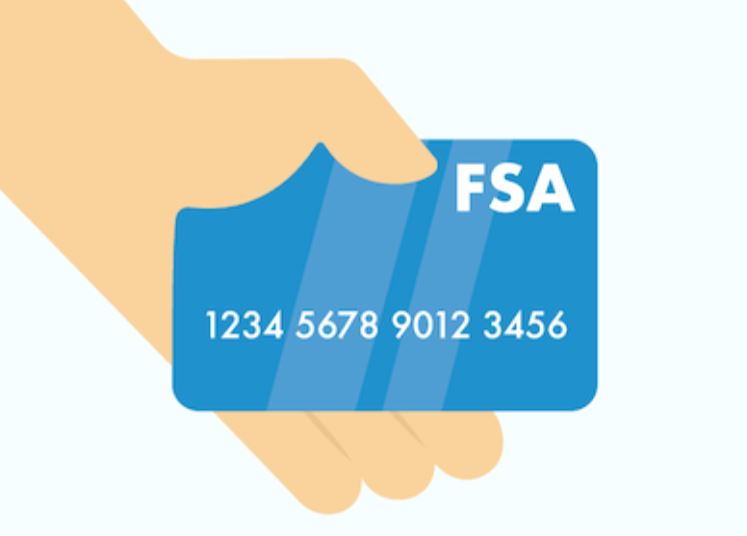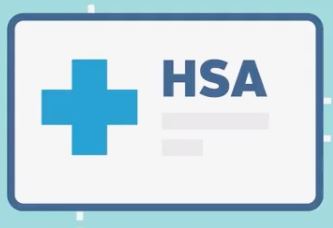News

IRS Announces 2026 HSA, HDHP Limits

Date: May 07, 2025
Employees will be able to save an additional $100 annually in their health savings accounts (HSAs) next year.The annual limit on HSA contributions for self-only coverage in 2026 will be $4,400, a 2.3% increase from the $4,300 limit in 2025, the IRS announced. For family coverage, the HSA

IRS Announces 2025 FSA, DCA, and Commuter Contribution Limits

Date: October 22, 2024
IRS Announces 2025 FSA, DCA, and Commuter Contribution Limits2025 IRS Contribution Limits for Cafeteria Plans: FSAs, HSAs, Dependent Care, and Commuter Benefits.The IRS has released updated 2025 contribution limits for various cafeteria plan accounts, including Flexible Spending Accounts (FSAs),

IRS Announces 2025 HSA, HDHP Limits

Date: May 09, 2024
The annual limit on HSA contributions for self-only coverage in 2025 will be $4,300, a 3.6 percent increase from the $4,150 limit in 2024, the IRS announced May 9. For family coverage, the HSA contribution limit will jump to $8,550, up 3 percent from $8,300 in 2024.

How HR Can Help Employees Use Their FSA Funds

Date: December 06, 2023
With the end of the year quickly approaching, HR and benefits leaders have yet one more task to add on to their busy end-of-year checklist: reminding employees about approaching deadlines to use up remaining cash in their health care flexible spending accounts (FSAs).

IRS Announces 2024 Health FSA Contribution Cap

Date: November 09, 2023
Employees can funnel an extra $150 into their health flexible spending accounts (FSAs) next year, the IRS announced Nov. 9. The annual contribution limit is rising to $3,200 in 2024, up from $3,050 in 2023. The hike is still significant, although it's a smaller boost than the $200 hike seen

IRS Gives Big Boost to HSA, HDHP Limits in 2024

Date: May 17, 2023
Thanks in part to persistent high inflation, employees will be able to sock away a lot more money in their health savings accounts (HSAs) next year. Annual HSA contribution limits for 2024 are increasing in one of the biggest jumps in recent years, the IRS announced May 16: The annual limit on HSA

2023 Health FSA Contribution Cap Rises to $3,050

Date: October 18, 2022
Employees can put an extra $200 into their health care flexible spending accounts (health FSAs) next year, the IRS announced on Oct. 18, as the annual contribution limit rises to $3,050, up from $2,850 in 2022. The increase is double the $100 rise from 2021 to 2022 and reflects recent inflation.

IRS Announces Spike in 2023 Limits for HSAs and High-Deductible Health Plans

Date: April 29, 2022
Health savings account (HSA) contribution limits for 2023 are going up significantly in response to the recent inflation surge, the IRS announced April 29, giving employers that sponsor high-deductible health plans (HDHPs) plenty of time to prepare for open enrollment season later this year. The

2022 Health FSA Contribution Cap Rises to $2,850

Date: November 11, 2021
Employees can put an extra $100 into their health care flexible spending accounts (health FSAs) next year, the IRS announced on Nov. 10, as the annual contribution limit rises to $2,850, up from $2,750. But with open enrollment for the 2022 benefits year already under way at many organizations, the

July 31 Form 5500 Deadline Reminders

Date: July 16, 2021
July 31 is the deadline for sponsors of non-calendar-year benefit plans to file Form 5500, Annual Return/Report of Employee Benefit Plan, with the IRS. Plan sponsors can request an extension to Oct. 15 by filing Form 5558, Application for Extension of Time to File Certain Employee Plan Returns.

Rethinking Commuter Benefits for a Hybrid-Work World

Date: May 27, 2021
The benefits implications of the shift to remote work last year, caused by the COVID-19 pandemic, caught even experts off guard. David Speier, managing director of benefits accounts at consultancy Willis Towers Watson, blogged that he realized "even though I had not been in the office for

IRS Answers Questions on COBRA Premium Assistance Credits

Date: May 26, 2021
The IRS recently provided new guidance for employers on the federal government's 100-percent premium subsidy to eligible COBRA health care enrollees, for coverage between April 1 and Sept. 30. IRS Notice 2021-31, released May 18, answers questions raised by employers, plan administrators and

IRS Guidance Clarifies Taxability of Dependent Care FSAs Through 2022

Date: May 25, 2021
The IRS addressed confusion over the taxability of dependent care flexible spending account (DC-FSA) funds for 2021 and 2022, clarifying that it won't tax amounts that COVID-19 relief provisions allowed to be carried over from year to year, or that are used during an extended period for

IRS Announces 2022 Limits for HSAs and High-Deductible Health Plans

Date: May 10, 2021
Health savings account (HSA) contribution limits for 2022 are going up $50 for self-only coverage and $100 for family coverage, the IRS announced May 10, giving employers that sponsor high-deductible health plans (HDHPs) plenty of time to prepare for open enrollment season later this year. The

DOL Issues COBRA Subsidy Guidance and Model Notices

Date: April 08, 2021
The U.S. Department of Labor (DOL) posted on its website guidance and model notices to help employers comply with the federal COBRA premium subsidy put in place by the American Rescue Plan Act (ARPA). "The American Rescue Plan provides much-needed relief to U.S. workers as they face critical

DOL Issues COBRA Subsidy Guidance and Model Notices

Date: April 07, 2021
The U.S. Department of Labor (DOL) posted on its website guidance and model notices to help employers comply with the federal COBRA premium subsidy put in place by the American Rescue Plan Act (ARPA). "The American Rescue Plan provides much-needed relief to U.S. workers as they face critical

IRS Makes Face Masks and Sanitizer Payable Under FSAs, HSAs or HRAs

Date: March 31, 2021
The IRS cleared up an issue about benefit account reimbursements for nonprescription, over-the-counter personal protective equipment (PPE) that has been a source of confusion since the start of the COVID-19 pandemic. In Announcement 2021-7, issued March 26, the IRS clarified that purchases of PPE

Increased Limit for Dependent Care Assistance Programs: Traps for the Unwary

Date: March 31, 2021
The American Rescue Plan Act of 2021 (ARPA), signed into law by President Biden on March 11, 2021, increases the amount employees can exclude from their 2021 gross taxable income for employer-provided dependent care assistance program (DCAP) benefits under Internal Revenue Code (Code) Section 129.

New COBRA Subsidy Requires Quick Action by Plan Sponsors

Date: March 23, 2021
The American Rescue Plan Act of 2021 (ARPA), signed by President Biden on March 11, 2021, includes a number of provisions designed to assist workers impacted by the COVID-19 pandemic. Among them is a new COBRA premium subsidy that pays for 100 percent of the applicable COBRA premium for eligible

Stimulus Act Raises Dependent Care FSA Limits, Adjusts Tax Credit

Date: March 15, 2021
The American Rescue Plan Act (ARPA), signed into law on March 11, raises pretax contribution limits for dependent care flexible spending accounts (DC-FSAs) for calendar year 2021. It also increases the value of the dependent care tax credit for 2021.

Biden Signs Stimulus Bill with 100% COBRA Subsidy Through September

Date: March 11, 2021
The federal government will pay 100 percent of COBRA insurance premiums for elgible employees who lost their jobs and for their covered relatives through September, allowing them to stay on their company-sponsored health plan, under the American Rescue Plan Act (ARPA) that President Joe Biden

Agencies Revise—and Complicate—COBRA Deadline Extensions

Date: March 03, 2021
Federal agencies issued new guidance addressing pandemic-related extended deadlines for electing COBRA health care continuation coverage and for filing health plan claims and appeals, among other issues, but some are warning that the new relief will be administratively burdensome for employers and

IRS Clarifies Relief for FSA Carry-Overs

Date: March 01, 2021
Employers can now offer employees participating in health flexible spending accounts (FSAs) and dependent care FSAs greater flexibility for rolling over unused funds through 2022, under new IRS guidance.

Appropriations Act Permits Midyear FSA Elections, Unlimited Carry-Over Amounts Through 2021

Date: January 05, 2021
The Consolidated Appropriations Act (CAA), signed into law by President Donald Trump near the end of 2020, gives employers the option to allow participants to roll over all unused amounts in their health and dependent care flexible spending accounts (FSAs) from 2020 to 2021 and from 2021 to 2022.

IRS Raises Health Plan PCORI Fee Payable in 2021

Date: December 11, 2020
The IRS is raising the fee that insurers or self-insured health plan sponsors will pay in 2021 to fund the federal Patient-Centered Outcomes Research Institute (PCORI) trust fund. The fee will be $2.66 per plan enrollee, up from $2.54 for the 2020 plan year, according to Notice 2020-84, which the

2021 FSA Contribution Cap Stays at $2,750

Date: October 27, 2020
For 2021, the dollar limit for employee contributions to health flexible spending accounts (health FSAs) through salary reductions remains unchanged at $2,750, the IRS announced on Oct. 27. For health FSA plans that permit the carryover of unused amounts, the maximum carryover amount for 2021 is

IRS Proposes Letting HRAs Pay Direct Primary Care and Health Ministry Fees

Date: June 23, 2020
On June 10, the IRS published a proposed rule that would let employer-funded health reimbursement arrangements (HRAs) pay for employees' care received through direct primary care arrangements (DPCAs) and health care sharing ministries (HCSMs). Both options, while controversial, have attracted

IRS Raises PCORI Fee, Due July 31 for Self-Insured Health Plans

Date: June 12, 2020
The IRS issued Notice 2020-44 on June 8 to adjust the fee paid by insurers or self-insured health plan sponsors to fund the federal Patient-Centered Outcomes Research Institute (PCORI) trust fund. The fee must be paid to the IRS by July 31. The new amount used to calculate the PCORI fee for plan

IRS Announces 2021 Limits for HSAs and High-Deductible Health Plans

Date: May 21, 2020
Health savings account (HSA) contribution limits for 2021 are going up $50 for self-only coverage and $100 for family coverage, the IRS announced May 21, giving employers that sponsor high-deductible health plans (HDHPs) plenty of time to prepare for open enrollment season later this year. The

DOL Temporarily Extends COBRA Sign-Up Deadlines

Date: May 20, 2020
In response to the COVID-19 pandemic, the U.S. Department of Labor (DOL) released a new final rule that temporarily extends the period in which eligible employees can elect COBRA health insurance coverage, and the deadline for them to begin making COBRA premium payments. On May 4, the DOL and IRS

IRS Allows Midyear Enrollment and Election Changes for Health Plans and FSAs

Date: May 15, 2020
On May 12, the IRS released two notices allowing employees during 2020 to make changes to their enrollments in employer-sponsored health plans and to adjust pretax contributions to health flexible spending accounts (health FSAs) and dependent care flexible spending accounts (dependent care FSAs).

DOL Temporarily Extends COBRA Sign-Up Deadlines

Date: May 05, 2020
In response to the COVID-19 pandemic, the U.S. Department of Labor (DOL) released a new final rule that temporarily extends the period in which eligible employees can elect COBRA health insurance coverage, and the deadline for them to begin making COBRA premium payments.

During the Pandemic, Telehealth Steps Up

Date: April 28, 2020
The coronavirus pandemic has changed many things—among them people's willingness to try telehealth services. It also helps that the federal government has, at least during the health crisis, relaxed restrictions that had hindered telehealth use.

IRS Relaxes High-Deductible Terms for COVID-19 Testing and Treatment

Date: March 20, 2020
High-deductible health plans (HDHPs) can cover the costs of testing and treating the spreading coronavirus before patients spend up to their plan's deductible without losing the plan's status as an HDHP, the IRS announced March 11. IRS Notice 2020-15 clarifies that an HDHP can provide

IRS Authorizes Refunds of 'Parking Lot Tax' for Nonprofit Employers

Date: February 07, 2020
ax-exempt organizations that paid unrelated business income tax (UBIT) on the value of employee parking may claim a refund for those taxes, the IRS announced. To do so, they should file an amended Form 990-T, following guidance the IRS updated Jan. 21 on its website.

2020 FSA Contribution Cap Rises to $2,750

Date: November 06, 2019
Employees can put an extra $50 into their health care flexible spending accounts (health FSAs) next year, the IRS announced on Nov. 6.

Understanding Section 125 Cafeteria Plans

Date: October 11, 2019
A cafeteria plan, also known as a section 125 plan, is a written plan that offers employees a choice between receiving their compensation in cash or as part of an employee benefit. If taken as a benefit, the employee generally receives two tax advantages: Employee contributions toward

New Final Rule Lets Employees Use HRAs to Buy Health Insurance

Date: June 14, 2019
Starting in 2020, workers can use individual coverage HRAs to purchase Affordable Care Act plans

2020 HSA Limits Rise Modestly, IRS Says

Date: May 28, 2019
Health savings account (HSA) contribution limits for 2020 are going up $50 for self-only coverage and $100 for family coverage, the IRS announced May 28, giving employers that sponsor high-deductible health plans (HDHPs) plenty of time to prepare for open enrollment season later this year.

New Jersey Employers Must Offer Employees Pre-Tax Commuter Benefits

Date: April 30, 2019
Gov. Phil Murphy recently signed S.1567 into law, making New Jersey the first state to mandate a commuter benefit, though New York City and San Francisco have similar laws.
In short, New Jersey's law requires employers in the state to offer pre-tax commuter benefits to employees.

MTA Fare Change Alert

Date: April 03, 2019
MTA Transit Increase Effective April 21, 2019
Subways, Buses, and Staten Island Railway Fares.

2019 FSA Contribution Cap Rises to $2,700

Date: November 15, 2018
Employers can let their employees put an extra $50 into their health care flexible spending accounts (heath FSAs) next year, but for some the announcement may have come too late.

Employers Final PCORI Payment Is Rising

Date: November 06, 2018
The final annual fee that sponsors of self-insured health plans must pay to fund the federal Patient-Centered Outcomes Research Institute (PCORI) is due July 31, 2019. The fee will go up by less than a dime for each employee or dependent enrolled in the health plan, the IRS announced on Nov. 5

Regulations Aim to Let Employees Use HRAs to Buy Health Insurance

Date: October 31, 2018
Workers could use pretax dollars to purchase coverage on Affordable Care Act exchanges

Childcare costs hit new heights. This employee benefit can help you save $5,000

Date: October 25, 2018
Working parents can use the child and dependent care credit, which is worth up to $1,050 for one child under 13 or $2,100 for two or more kids under 13.
You might have access to a dependent care flexible spending arrangement at work: Save up to $5,000 each year per household on a pretax basis.

House Passes Bills Enhancing HSAs

Date: July 27, 2018
The House of Representatives on July 25 passed two health care bills that could transform the use of tax-advantaged health savings accounts (HSAs).

2019 HSA Limits Rise, IRS Says

Date: May 11, 2018
fter a tumultuous year of changes in the 2018 annual contribution limits for health savings accounts (HSAs)�they weren't finalized until well into the current year�health plan sponsors should have plenty of time to prepare for the 2019 HSA contribution caps, announced by the IRS on May 10.
Next

2018 Family HSA Contribution Limit Stays at $6,900 After All

Date: April 27, 2018
The IRS on April 26 announced relief for taxpayers with family coverage under a high-deductible health plan (HDHP) and who contribute to a health savings account (HSA).
For 2018, taxpayers with family coverage under an HDHP may treat $6,900 as the maximum deductible HSA contribution, up from

IRS Lowers 2018 Family HSA Contribution Limit by $50

Date: March 06, 2018
The 2018 contribution limit for health savings accounts (HSAs) linked to family coverage will be $6,850�not $6,900, as the IRS had previously announced. The IRS recalculated the limit because the Tax Cuts and Jobs Act that passed at the end of 2017 applies the so-called chained consumer price index

2018 FSA Contribution Cap Rises to $2,650

Date: October 23, 2017
Employees can put an extra $50 into their health care flexible spending accounts (heath FSAs) next year.

Design Transit Benefits to Increase Workers Engagement

Date: March 06, 2017
Traffic congestion and the rising cost of commuting are combining to push employers to offer transit benefits that allow employees to use pretax dollars to pay for certain commuting costs.
"A lot of employees are asking, 'How do I make this commute into my office either less expensive or more

New Law Lets Small Employers Use Stand-Alone Health Reimbursement Arrangements

Date: December 13, 2016
President Barack Obama on Dec. 13 signed into law the 21st Century Cures Act, which will let small businesses use health reimbursement arrangements (HRAs) to fund employees who purchase individual health plans on the open market.
The bipartisan bill, which Congress passed Dec. 7, focuses

2017 FSA Changes: How Flexible Spending Accounts Can Save You on Taxes

Date: December 04, 2016
Flexible spending accounts are available to millions of American workers, and FSAs can save you a bundle on your taxes. Every year, the amount that you can contribute toward an FSA typically changes, and that can give you even more opportunities to cut your tax bill. Below, we'll look at the 2017

2017 FSA Contribution Limit Rises to $2,600

Date: November 01, 2016
Employees will be able to put more income into their health care flexible spending accounts in 2017, when the FSA contribution limit rises to $2,600.00

Address HSA Misconceptions During Open Enrollment

Date: October 14, 2016
Open enrollment is an opportunity to help employees understand the value of a health savings account (HSA), but many employers make common mistakes that undermine their communications efforts.
"Selecting an HSA option with a high-deductible health plan can have a tremendous impact on a family's

Health FSA Maximum Contribution Set at $2,550

Date: October 01, 2014
The annual maximum for health FSAs has increased from $2,500 for 2014 to $2,550 for 2015. Transit limits remain unchanged for 2015, with the monthly parking limit remaining at $250 and the mass transit limit remaining at $130.

FSA rules changed to allow $500 rollover

Date: November 01, 2013
Employees with Flexible Spending Accounts (FSAs) now have a little more flexibility. A recent rule modification from the Internal Revenue Service (IRS) now allows FSA holders to roll over up to $500 of savings for use in the following year.

